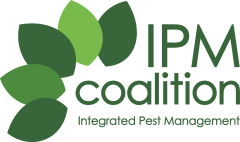Coalition status
FSC highly restricted HHPs
Chemical pesticide presenting two or three out of the following hazards: acute toxicity, chronic toxicity and environmental toxicity.
UEBT Risk MitigationThe use of the Risk Mitigation Agrochemicals is discouraged as they are known to bear significant human health and environmental risks. Where these…
UTZ ProhibitedA pesticide all uses of which have been prohibited by final regulatory action, in order to protect human health or the environment.
Details
Type: Pesticide
Use: Insecticide
Example applications: Sugarbeet;Potatoes;Cotton;Ornamentals;Apples
Example pests controlled: Aphids including blackbean aphid, sugarbeet root aphid & peach-potato aphid
Mode of action: Systemic with contact and stomach action.
Source: PPDB
Toxicty
Bird toxicity
Highly toxic to birds acute oral LD50 (LD50 < 200mg/bg bw)
Highly toxic to birds acute oral LD50 (LD50 < 200mg/bg bw)
Mammal toxicity
Acute oral LD50 for most sensitive mammal species (LD50 < 200mg/kg bw).
Identifiers
GHS safety labels
About Globally Harmonized System of Classification and Labelling of Chemicals (GHS)
From Wikipedia: The Globally Harmonized System of Classification and Labelling of Chemicals (GHS) is an internationally agreed-upon standard managed by the United Nations that was set up to replace the assortment of hazardous material classification and labelling schemes previously used around the world. Core elements of the GHS include standardized hazard testing criteria, universal warning pictograms, and harmonized safety data sheets which provide users of dangerous goods with a host of information. The system acts as a complement to the UN Numbered system of regulated hazardous material transport. Implementation is managed through the UN Secretariat. Although adoption has taken time, as of 2017, the system has been enacted to significant extents in most major countries of the world.[1] This includes the European Union, which has implemented the United Nations' GHS into EU law as the CLP Regulation, and United States Occupational Safety and Health Administration standards.
